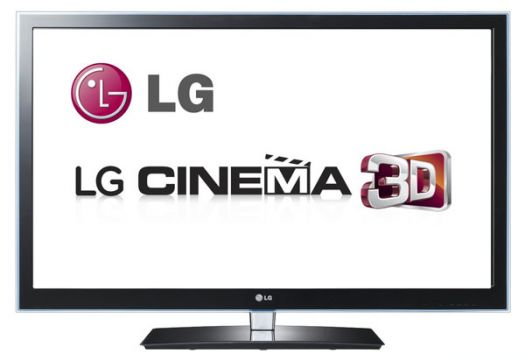Apparently, you can't believe everything that you read. Last year, we told you that LG had released survey results stating that four out of five consumers prefer passive 3D TV. Now, the Better Business Bureau is calling them out on it.
The National Advertising Division of the Council of Better Business Bureau just came out with a statement asking LG to stop touting those claims in TV and web advertising, as well as press releases and dealer-directed materials. Apparently, the NAD wasn't the only one that had a problem with LG's claims. Sony and Samsung actually had something to say about it as well.
Back in June, LG's survey results said that 80 percent of consumers prefer LG's passive 3D TVs over the likes of active 3D sets from Sony and Samsung.
LG's announcement was part of a push for passive 3D technology, and more specifically, the company's Cinema 3D Series. This line includes seven models of 3D TVs, in screen sizes ranging from 42 to 65 inches. It also includes three models of passive 3D glasses.
New for 2011, passive 3D TVs have Film Patterned Retarder (FPR) incorporated into the TV screen to separate the left and right images. The end result is said to deliver a flicker-free, bright viewing experience, but also a more comfortable one. That's because passive 3D TVs use glasses similar to the ones used in movie theaters, which don't require bulky batteries or charging.

While the NAD's recommendations are not legally binding, LG said it would take those views into consideration going forward. Then, according to the NAD, the company turned around and contacted customers, including electronics dealers and retailers about the case. The NAD says that LG's actions "violated the procedures that govern the advertising industry's system of self-regulation."
According to the NAD, an agreement signed by all of the involved parties state that NAD proceedings and decisions cannot be used to promote products and/or brands to customers.
"NAD examines advertising claims to assure that they are truthful, accurate and not misleading and NAD's review is impartial," the company said in its statement. "Self-regulation is a voluntary process and participating companies agree that decisions will not be used for promotional purposes."
For More Information: